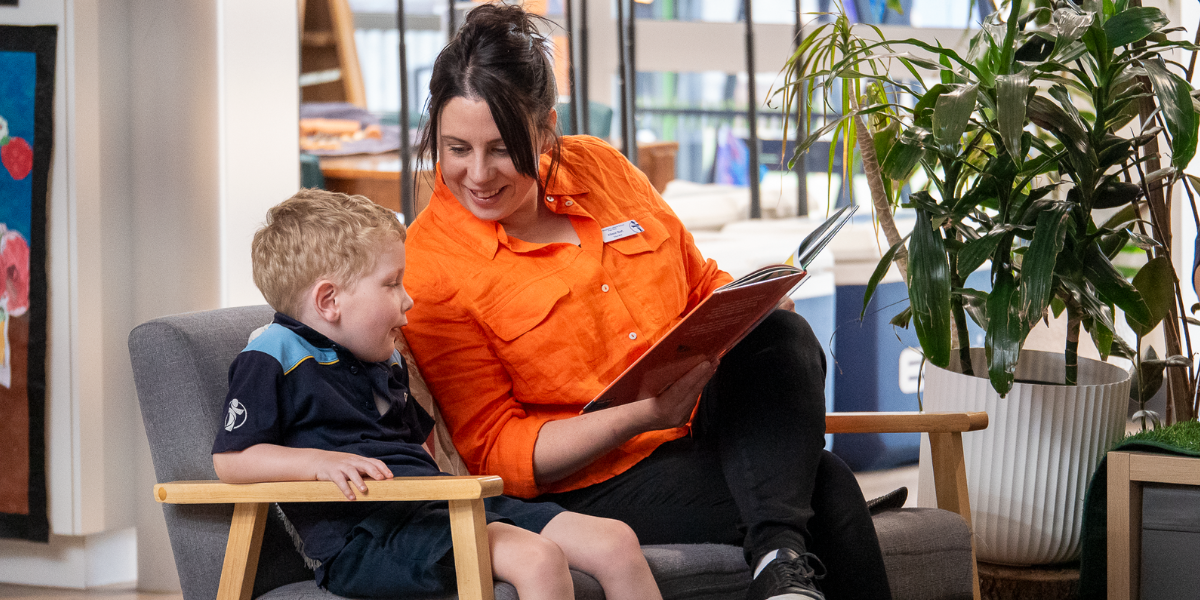Curiosity ELC

Reminder:
Book Week Dress Up Day is Monday. Please arrive at 8:30am ready to head to the school for the parade. If you arrive after 8:40am please bring your child over to the Library where you can hand them over to an Educator to sign them in.
Article "New Neuroscience Shows Why It’s So Important to Read Aloud to Your Children"
A new British survey from data company Nielsen and publisher HarperCollins found that the number of parents reading aloud to their preschool-age kids declined to just 41 percent, from 64 percent in 2012. Just 40 percent of parents in this latest survey described reading to their little ones as “fun for me.” But a lack of enthusiasm for shared reading wasn’t the only likely reason for the decline. A third of parents said they wished they had more time to read aloud to their children.
It’s easy enough to see why parents and kids might feel so exhausted at the end of the day that they’d consider skipping a bedtime story. But a host of educational experts, as well as fascinating new neuroscience, suggests entrepreneur parents should think twice before giving up on the classic parenting activity.
Ways reading for fun benefits kids
Educators have long advocated that parents read aloud to kids. Reading for fun introduces children to the magic of the written word in a relaxed, low-pressure setting.
“Being read to makes reading fun for children,” Alison David, consumer insight director at HarperCollins, explained to The Guardian. “So, it’s very concerning that many children are growing up without a happy reading culture at home. It means they are more likely to associate reading with schoolwork, something they are tested on and can do well or badly, not something they could enjoy.”
But the benefits of reading aloud to young children extend well beyond teaching them that books aren’t just something stressful that teachers torture them with. Developing the habit of reading for pleasure is linked with serious benefits later on, both in school and in life. A large recent research project out of The University of Cambridge dug into data on the reading habits and cognitive development of 10,000 American kids aged 9 to 13. The results were clear.
“Our observational study shows a dramatic and positive link between a fun and simple activity—reading for pleasure in early childhood—and better cognition, mental health, and educational attainment in adolescence,” the study authors wrote in The Conversation.
Perhaps unsurprisingly, kids who read more for fun had better test scores. But they also had fewer mental health problems as teens. And this wasn’t just true because kids who read more came from families with more education or resources. It was true for children of all backgrounds.
Your kid’s brain when you read aloud to them
The scientists behind the Cambridge study didn’t look into the neuroscience of what books do to kids’ brains exactly. But they did point to other research that did.
“It is already known that language learning, including through reading and discussing books, is a key factor in healthy brain development. It is also a critical building block for other forms of cognition, including executive functions (such as memory, planning, and self-control) and social intelligence,” they explained.
Brand new science supports the idea that reading has a unique power to nurture healthy brain development. For a recent study published in Developmental Science, a team of neuroscientists used a technique called functional near-infrared spectroscopy to observe 28 preschoolers’ brains both when they were listening to stories being read aloud by a human and when they were listening to a similar story while following along via pictures on a screen.
In both instances the children heard an engaging tale, but their brains looked very different. When kids were read a story, a section of the brain called the right temporal parietal junction was activated. The part of the brain associated with paying attention to others and decoding their emotions was activated. When the kids listened to the story via a screen, it wasn’t.
“These findings suggest that the social interaction involved in live book reading may help build neural pathways important for communication and empathy,” PsyPost noted. “It adds to a growing body of evidence suggesting that not all story time experiences are equal in their effects on early brain development.”
Why you should make time for bedtime stories
I get it. Reading The Hungry Caterpillar for the 400th time isn’t the most relaxing way to end a long day. It’s understandable if you’re among the growing ranks of parents who struggle to make time to read aloud to your kids.
But neuroscience is clear. They’re missing out on something uniquely valuable when you skip story time or hand them a storytelling app instead. Reading aloud to kids isn’t just about bonding and teaching them to love books. It very much accomplishes those things, but it also exercises their growing brains in valuable ways other activities just can’t match.
So think hard about whether you really can’t find the time and energy.
BY JESSICA STILLMAN, CONTRIBUTOR, INC.COM. May 27, 2025.

